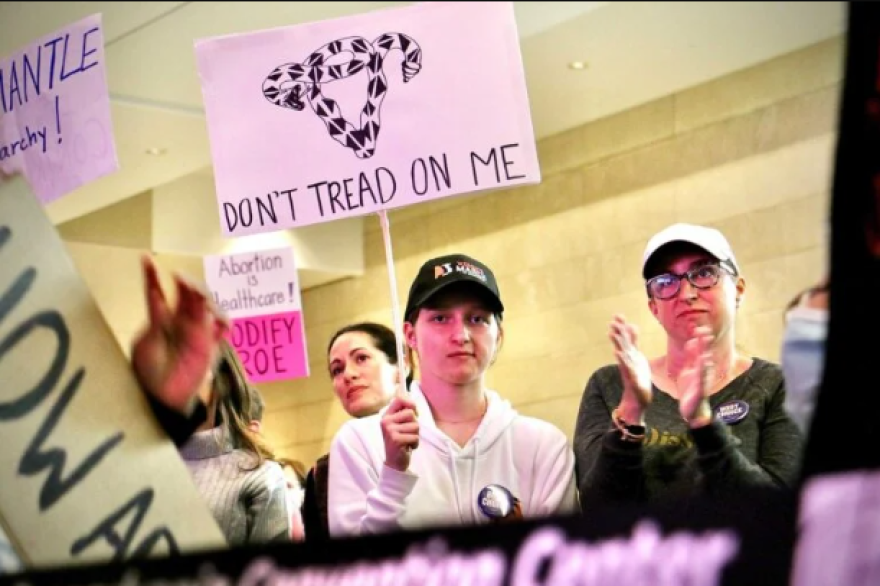The landscape of abortion rights in Pennsylvania could shift dramatically in the upcoming elections, as the state grapples with the implications of the United States Supreme Court’s decision to overturn Roe v. Wade. This landmark ruling from 1973 had previously established access to abortion as a constitutional right, leaving states to determine their own laws on the matter. Since then, 19 states have enacted bans or restrictions on abortion earlier than previously allowed. In Pennsylvania, however, the law permits abortions up to 24 weeks of pregnancy, with some exceptions for the health of the mother.
The potential for change hinges on the outcome of elections scheduled for November 2026. Anti-abortion activists have outlined a strategy aimed at reshaping the state’s abortion laws. The key question remains: Is abortion access at risk in Pennsylvania?
Possible Constitutional Amendments
Currently, there is no explicit provision in the Pennsylvania Constitution concerning abortion rights. The state’s Supreme Court has interpreted the Equal Rights Amendment as a protection for abortion access, based on principles of equal protection and privacy. While some justices have suggested that the state constitution guarantees a fundamental right to abortion, this has not been formally established across all contexts.
One pathway to restrict abortion access in Pennsylvania would be through a constitutional amendment. State Representative Donna Oberlander initiated a bill in the 2021-2022 session aimed at amending the constitution to clarify that “there is no right to abortion or funding for an abortion.” However, achieving such an amendment is a complex process. According to John Kincaid, a government professor at Lafayette College, an amendment would require passage by a two-thirds majority in both legislative chambers across two consecutive sessions, followed by a referendum.
Despite these challenges, Kincaid noted that the legislature could still pass bills that effectively limit abortion access, without outright prohibiting it. For instance, legislation has been proposed that would ban abortions after a fetal heartbeat is detected, mirroring laws enacted in states like Georgia, Florida, and South Carolina. Additionally, proposed bills could restrict abortions in cases of Down syndrome diagnoses.
The Role of Elections and Political Leadership
The current state legislature is divided, which makes immediate changes to abortion laws unlikely. However, the elections in November 2026 will see all members of the Pennsylvania House of Representatives and half of the state Senate up for reelection. Presently, Republicans hold a slight majority in the Senate and are only one seat shy of a majority in the House. Should they gain control of the House while retaining the Senate, they would be positioned to introduce significant restrictions on abortion access.
Winning the executive branch is also essential for anti-abortion activists. Josh Shapiro, the current governor and a Democrat, is a vocal supporter of abortion rights. His administration has been characterized by efforts to safeguard access to reproductive healthcare. As the gubernatorial race begins, Republicans have coalesced around Stacy Garrity, the state treasurer, who has previously indicated anti-abortion views.
While Garrity has removed anti-abortion merchandise from her campaign website and stated she does not support a ban on abortion, skepticism remains among pro-choice advocates. Dr. Karen Feisullin, an obstetrician and gynecologist, pointed out Garrity’s connections with staunchly anti-abortion figures, including Louisiana Governor Jeff Landry, who signed legislation against medication abortions.
Even if Republicans successfully gain control of both the executive and legislative branches, any new abortion ban would likely face legal challenges. Maria Gallagher, executive director of the Pennsylvania Pro-Life Federation, expressed optimism for a shift in political leadership that could lead to more restrictive abortion laws.
Judicial Landscape and Future Challenges
The Pennsylvania Supreme Court currently has a 5-2 Democratic majority, which has ruled that access to abortion is a constitutional right in the state. The case of Allegheny Reproductive Health v. Pennsylvania Department of Human Services highlighted that denying Medicaid funding for most abortions likely violates the Equal Rights Amendment. The court’s decision established a high standard for any future attempts to restrict abortion access.
Three justices on the court, including Christine Donahue, face retention votes this year. If voters choose to remove them, it could pave the way for a court less favorable to abortion rights. Historically, only one justice in Pennsylvania has lost a retention vote, making such an outcome unprecedented.
Despite the odds against them, anti-abortion activists are mobilizing significant resources for this election cycle. The Democratic National Committee has also become involved, investing heavily in campaign efforts to maintain the current judicial balance.
Polling data suggests that anti-retention efforts face significant challenges. A survey by Franklin and Marshall College indicates that the justices maintain leads among likely voters. Meanwhile, control of the legislature remains competitive, with numerous districts poised for intense races.
The upcoming elections represent a critical juncture for abortion rights in Pennsylvania. With the potential for significant political shifts, the implications for reproductive healthcare access could be profound. As the situation evolves, both sides of the debate are gearing up for a fight that will shape the state’s future.
